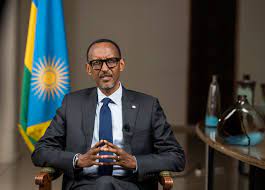On 2nd November 2023, Rwandan President Paul Kagame announced that any African national could get on a plane whenever they wished and would not pay any amount to enter Rwanda. President Kagame made this pronouncement in Kigali where he pitched the potential the potential of Africa as a unified tourism destination.
In a similar development, Kenya’s president announced plans to allow all Africans to travel to the East African nation visa-free by the end of this year. Once implemented Rwanda will become the fourth African country to remove travel restrictions for Africans. Other African nations that have waived visas to African nationals are Gambia, Benin, and Seychelles.
According to the African Union Agenda 2063, Africa should be an integrated continent politically, socially, and economically united based on the ideals of pan-Africanism and on the vision of African identity with a strong cultural identity common heritage, shared values, and ethics. To achieve these aspirations of Africans identifying themselves as one united people under great ideals of pan-Africanism, the physical and invisible barriers and blockages that in time prevented the integration of African people have to be removed.
There have been calls by many pan-Africanists to make Africa a visa-free continent for all African people to enhance movement for all African citizens in all African countries. To achieve this there is a need to transform African laws which generally remain restrictive on the movement of African citizens. The free movement of persons in Africa is expected to deliver several key benefits and developments.
Boosting African trade commerce and tourism. The potential of intra-trade in Africa remains largely under-exploited because of restrictions on the movement of African citizens. Trade between African countries represents only 12% of total economic activity on the continent compared to 60% in Europe and 40% in Asia. Africa needs to advocate for a better trade with itself.
In March 2018 African countries signed the African Continental Trade Area (AFCFTA) which aimed at removing tariffs on 90 percent of goods. A free Africa will aid in progressive trade within Africa thus boosting a single African market of more than a billion consumers with a total GDP of over $ 4 trillion. With visa-free across Africa, the continent has the potential to be the largest free trade area in the world.
Visa-free Africa also facilitates labor mobility, and African knowledge and skills transfer. Difficulty in getting visa constraints labor mobility in Africa yet labor migration is good for trade and economic development, especially in developing countries. Free movement of people benefits both countries of origin and destination. According to reports from the African Development Bank, tourism in Seychelles increased by about 10% between 2009 and 2014 when the country abolished visas for African nationals.
Visa-free Africa is expected to promote pan-African identity and social integration. A visa-free Africa will aid in balancing labor supply and demand, help develop and transfer skills at all levels, contribute to social protection systems, foster innovation, and enrich communities both culturally and socially.
Fostering transborder infrastructure and shared development. A visa-free Africa will ensure improved transport communications between countries and aid in helping many African landlocked countries have access to sea ports, thus invariably promoting African intra-regional trade by reducing transport and shipping costs as well as transit time for imports and exports.
Fostering a comprehensive approach to border management, a visa-free Africa will help African countries identify irregular migration and human trafficking by providing data to inform national policy-making in connection with the flow of persons and goods.
Kamukama Rukundo Clinton is a Ugandan pan-Africanist, author, and columnist for 1cananews who can be contacted via +256704393540 or rukundopeter33@gmail.com
Source:
Kamukama Rukundo Clinton















































